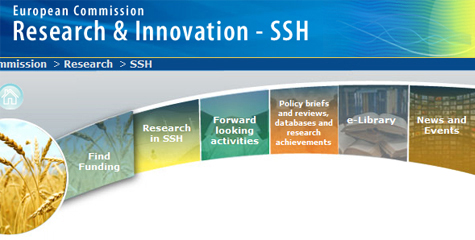Concerns over socio-economic and humanities research "downgrade"

Weak Signal's progress: fully-fledged
This Weak Signal came from:
Workshops/Meetings
The theme/scheme related to this Weak Signal:
United Kingdom
The sub-theme that best relates to this Weak Signal:
February 2010
The source of this Weak Signal:
Based on the social sciences and humanities (SSH) expert group discussions at the iKNOW workshop in Manchester (February 2010) and a post in Research Fundamentals blog (December 2010) available at: http://fundermental.blogspot.com/2010/12/protecting-social-sciences-humanities.html
When did the Weak Signal manifest ?
2005-now
Weak Signal's description
The role of Socio-economic Sciences and Humanities as a stream (SSH) within the European Commission's Framework Programme is being changed. In particular, three issues have been highlighted by critical commentators and the University Association for Contemporary European Studies: (1) The perceived "downgrading" of SSH research as Directorate L for Science, Economy and Society (SES) has been discontinued. From January 1, 2011 SSH became a Unit under Directorate B for European Research Area but its role remains uncertain for people outside the EC; (2) the plan to abolish broader, long-term integrated projects in SSH in the next Framework Programme, in the course of moving to a focus on "grand challenges" in which social sciences may well feature only as ‘auxiliary’ disciplines to be mainstreamed into more applied work oriented more around other disciplines; and (3) the downsizing of funding for specifically socio-economic and humanities research projects in the 8th Framework Programme. Among the questions raised: Can fundamental social research questions be sufficiently addressed to fully inform more applied research? Might not whole areas of social enquiry, of vital importance to Europe’s future, be neglected as Grand Challenges are focused in more technical ways? Will the social researchers engaged in FP work be drawn more from consultancies and specific approaches to study (specific brands of economics, for instance), neglecting equally valid approaches that are less digestible by engineers and environmentalists?
